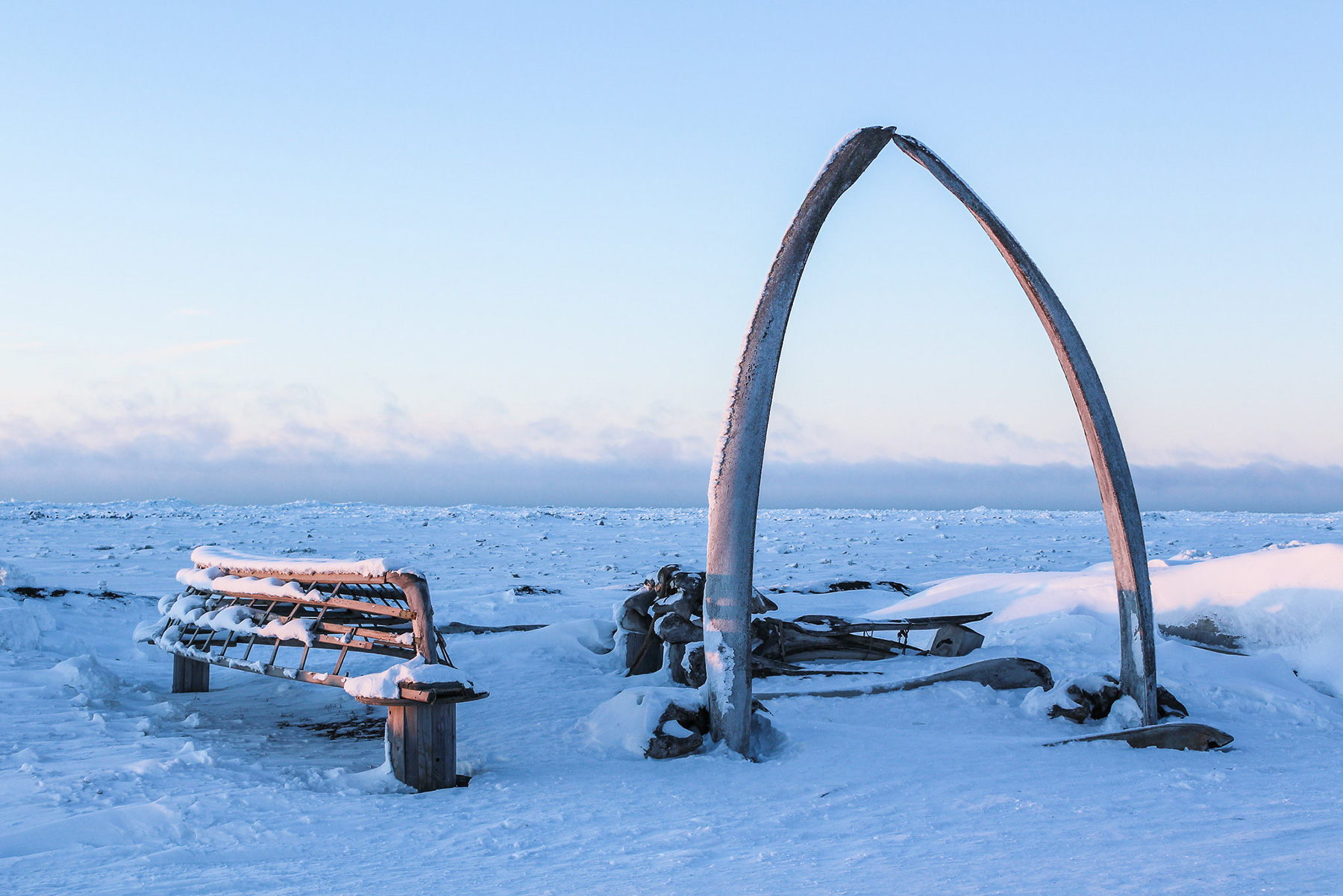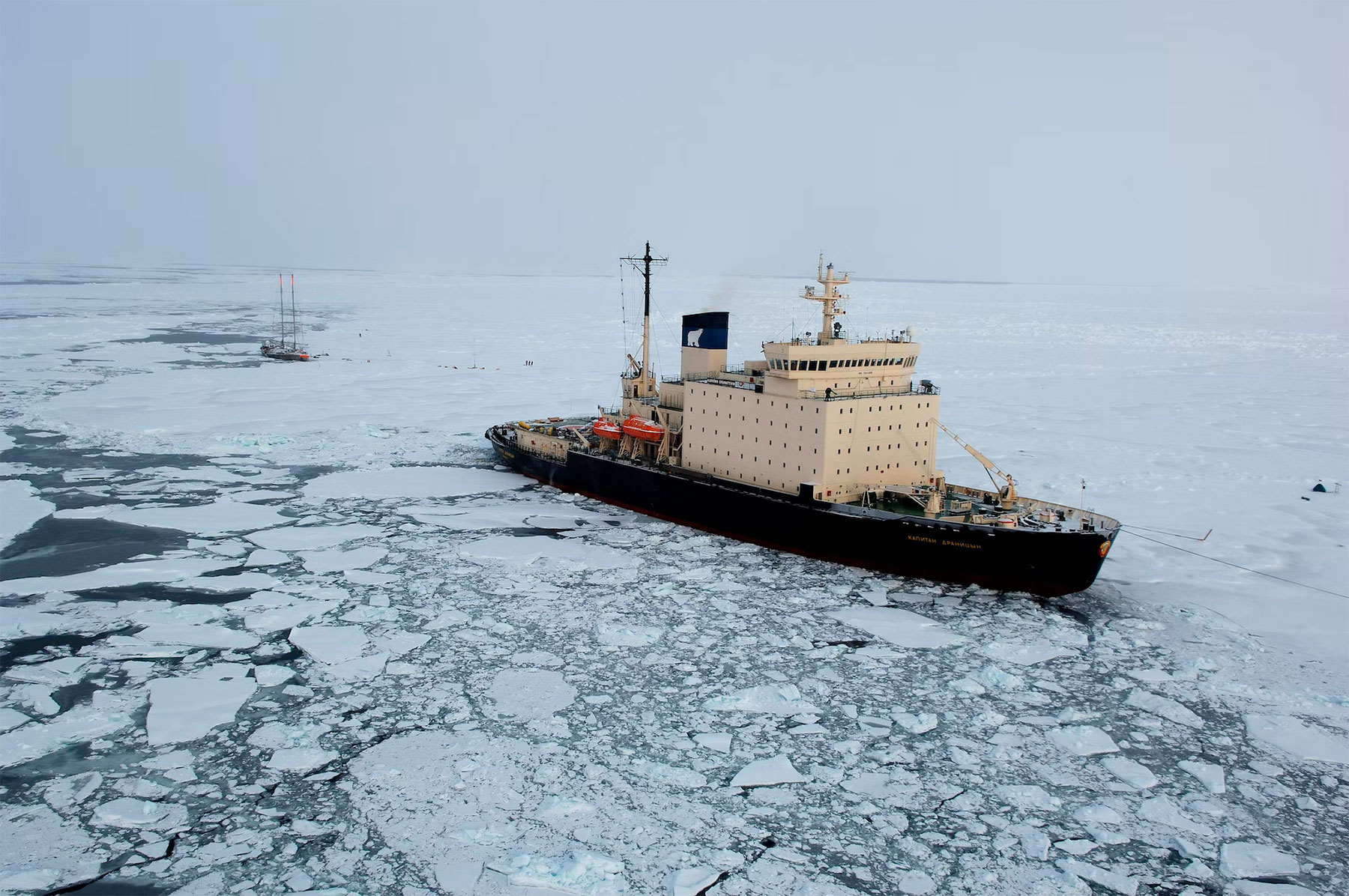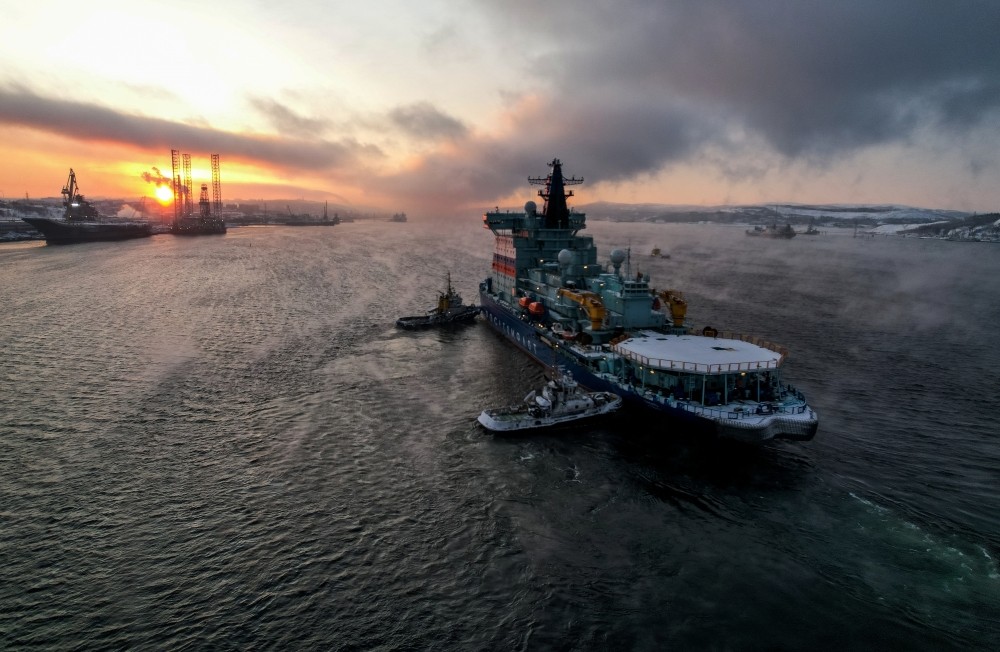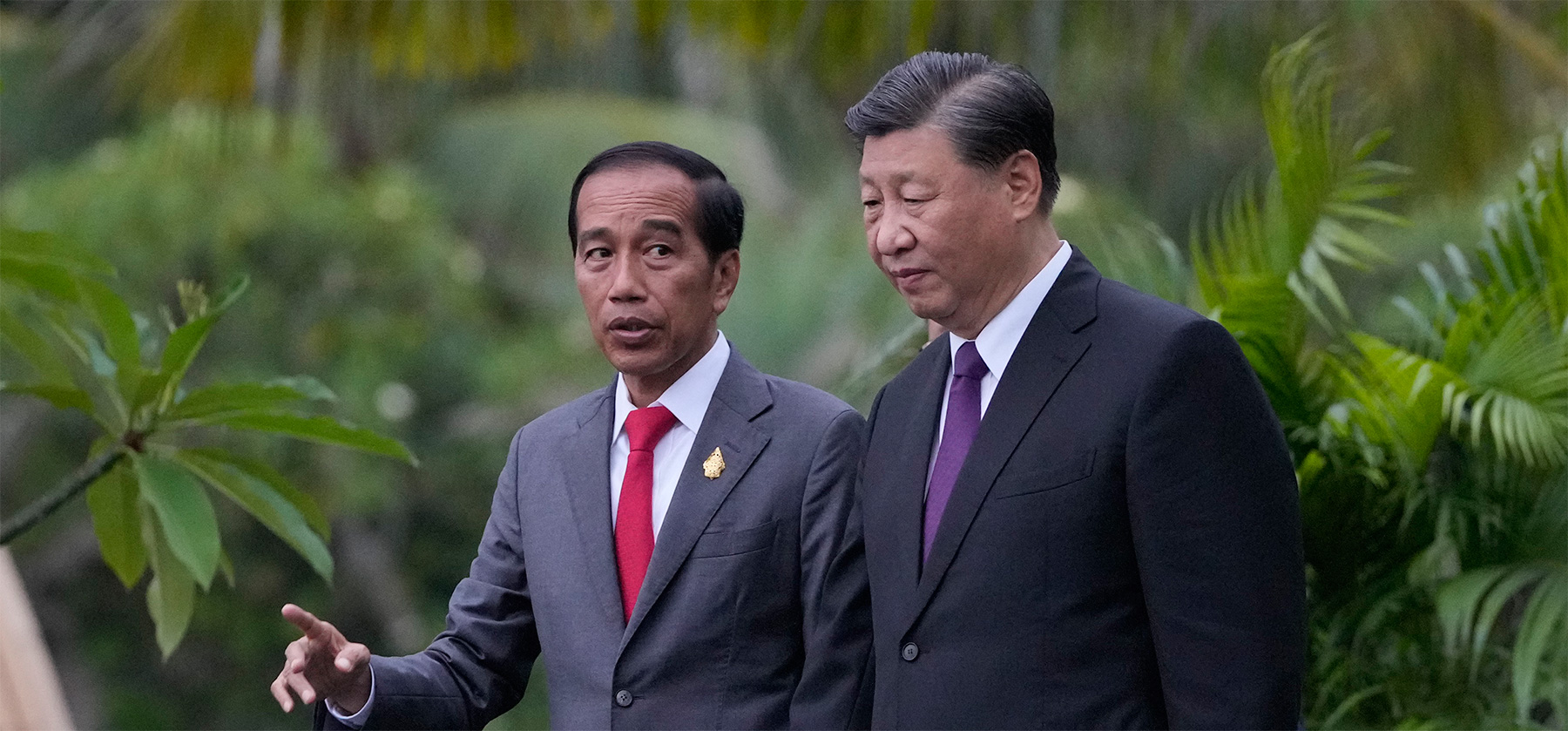The Arctic Council, which in the past had served as an important mechanism of cooperation, currently remains suspended under Russian chairmanship as a result of the Arctic Seven’s (A7) [1] solidarity against Russia’s decision’s pertaining to the conflict in Ukraine. The already limited progress in the council’s working groups during the two years of the COVID-19 pandemic, followed by the suspension under Russia’s chairmanship has not only impacted regional states but has also significantly hindered the global scientific research and progress it once achieved in the past. Though there are many critical questions concerning the future of the Council that presently do not have any easy answers, its upcoming chairmanship in May, 2023 offers Norway a historic opportunity to re-revive some level of cooperation in the region. Science and climate change research that has always topped Norway’s agenda could yet be the restarting points needed for cooperation.
With Norway’s approaching chairmanship in the Arctic Council, hope remains high that the country might define its regional objectives “clear” and “outright” for the next two years. Though Arctic geopolitical challenges remain in the backdrop of the Ukraine crisis, Norway needs to adopt a balanced approach differentiating “science” from “active geopolitics” in the region. Norway has a long history of “peace diplomacy” through which it has inter-mediated and successfully resolved multiple conflicts globally. Furthermore, Norway has also played a crucial role in mitigating various challenges in the Arctic via the successful conduct of its “Science Diplomacy”. Though there is no ongoing war or military conflict in the Arctic, the region remains vulnerable to exceptional securitization where traditional military buildups are taking the lead. Any strategic miscalculation or provocation by either side could result in a major direct military confrontation or war. It is therefore high time for Norway to re-implement certain elements of its traditional “peace” and “science diplomacy” for de-escalating East-West tensions in the Arctic.
The Western geopolitical reasoning for its decision on terminating cooperation with Russia may be explained in the backdrop of the Ukraine conflict, but it has completely ignored the stakes of Asian and other neutral participants in the region. Though the term “Arctic exceptionalism” does not hold any legitimate validity in the present context of globalization, the Arctic region certainly needs “exceptional responses” from states to address new exceptional challenges. Neutral Asian observer states in the council, such as India, could further act as a bridge through their existing independent bilateral relations with all the Arctic states. Western doubts over achieving the same level of trust and cooperation that existed in the council prior to the Ukraine crisis may hold its own reasoning and precedence, but the Global South looks at Norway with a hope to at least push the “un-pause button” of the Council, so that some level of same global cooperation return to the region.
The resonance of the Russia-Ukraine conflict has sent geopolitical tremors in the Arctic that has, in a way, fractured regional ice. Suspension of the Arctic Council, Finland and Sweden’s decision to join North Atlantic Treaty Organization (NATO), the termination of all existing cooperation with Russia, and escalating military buildups on both Eastern and Western sides are some of the immediate effects erupting in the region following the advent of the Ukraine crisis. The Arctic region has been witnessing geopolitical challenges since the First and Second World Wars, and these were amplified significantly during the Cold War period. The post-1989 region has also subsequently witnessed a de-securitization phase (initially on non-military matters followed by military matters) as a result of unilateral and bilateral state approaches, despite their geopolitical rivalries. [2] A formula for cooperation on non-military matters with simultaneous low competition on military and sovereignty issues prevailed until 2022. This changed drastically with Russia’s new approach to Ukraine. Since then, the region has again started moving towards an upward spiral of rapid securitization.
The Arctic Council, which in the past had served as an important mechanism of cooperation, currently remains suspended under Russian chairmanship as a result of the Arctic Seven’s (A7) [3] solidarity against Russia’s decision pertaining to the conflict in Ukraine. The already limited progress in the council’s working groups during the two years of the COVID-19 pandemic, followed by the suspension under Russia’s chairmanship has not only impacted regional states but has also significantly hindered the global scientific research and progress it once achieved in the past. Though there are many critical questions concerning the future of the Council that presently do not have any easy answers, its upcoming chairmanship in May, 2023 offers Norway a historic opportunity to re-revive some level of cooperation in the region. Science and climate change research that has always topped Norway’s agenda could yet be the restarting points needed for cooperation.
Norway-Russia Relations in the Arctic
Norway-Russia bilateral relations have seen several ups and downs in the past. Amongst all the Nordic countries, Norway shares a 197 km direct land border with Russia. It has been a founding member of NATO since 1949 and has played an active role in global power politics by openly sidelining with its western partners. Despite all this, Norway has simultaneously remained successful in containing its cordial relationship with Russia in many aspects. Russians and Norwegians along the border towns on each side share social linkages and travel to each other’s side through an established Norway-Russia 30 km land border agreement. [4] The land border crossing at Storskog (a point about 16 km east of the Norwegian town Kirkenes) continues to remain open, despite Western pressures to close it. Since the conflict in Ukraine, Storskog has become the only land border open for crossing to Europe for Russian tourists. [5] Both countries set a historic milestone in their bilateral relationship in 2010 when they become successful in mutually settling their 40-year-long pending maritime boundary dispute in the Barents Sea. [6] Russian fishing vessels continue to access the Norwegian port of Kirkenes, again, despite western geopolitical pressures amid this ongoing conflict. Further, resupply access to Russian coal mining communities settled on Svalbard Island also continues uninterrupted despite all odds. [7] All these existing mechanisms are positive acknowledgements with a hope to what Norway, with its upcoming leadership role in the Council, could further achieve in the region.
Current Challenges
In the last two years, the Arctic Council under Russian chairmanship has failed to meet its desired objective. There are multiple reasons associated with this, the primary being the termination of every form of western cooperation and Council meeting boycotts of Russia’s chairmanship. Both sides accuse each other of violating the fundamental principles of the Ottawa Declaration that has resulted in its current status of a “temporary pause”. [8] Rising geopolitical tensions as a result of the Ukraine crisis have superseded global scientific research endeavors that were in place through the working groups of the Arctic Council. East-West geopolitical discourses have even resulted in Arctic indigenous communities being torn over the matter; some support President Putin’s “special military operation” in Ukraine, while others outrightly oppose it by calling it a “Russian invasion”. [9]
The real debate regarding what constitutes “real priority threats” in the Arctic is being lost, while traditional securitization is taking over as general precedence in the region. The emerging issues of non-traditional aspects are getting buried under the traditional aspects of security through perceived possibilities and probabilities of “what might” or “could” happen in the Arctic in the near future. Territorial and sovereignty issues of states have gained utmost priority, and Arctic states have started addressing this through traditional measures of “security alliances” and “military buildups”, rather than through “consensus” and “cooperation”. The Arctic Council, which was one of the most successful cooperation mechanisms in the last 25 years, has been not only hijacked by the Ukraine conflict, but the council’s balanced composition maintained through its neutral members (Finland and Sweden) has also been compromised with their decision to join the NATO alliance.
Second, Climate Change and Global warming remain to be real and concerning existential threats in the Arctic’s near future. The release of vast amounts of methane and the further warming of the region through the challenges of ‘black carbon’ and the scientific process of ‘arctic amplification’ require global scientific cooperation. ‘Geopolitical alliances’ aimed at sidelining Russia might serve the ‘geopolitical interests’ of these Arctic states but, sideling Russia (which accounts for more than 53 per cent of coastal extent in the region) from cooperating on such matters of existential concerns serves no one’s interests.
Third, Arctic states seem to be completely neglecting the real dangers of severe chain reactions that are bound to be triggered in the region in near future. Vast amounts of accumulated nuclear waste [10] and scientific backing on the possible revival of deadly pathogens that lie beneath Arctic ice caps pose serious concerns. Human exposure to such critical elements with the continuous melting of Arctic ice could result in global catastrophes and even unleash of future pandemics. [11] The Arctic, therefore, requires an unbiased regional and global approach; any kind of selective or divided alternative cooperation arrangements over such issues would not serve common global interests.
Fourth, the suspension of the Arctic Council and termination of every form of cooperation with Russia would cause a domino effect of similar counter-Russian responses to other established critical mechanisms of regional and global cooperation. Scientific progress achieved through important agreements such as the 1973 Agreement on the Conservation of Polar Bears and the Agreement to Prevent Unregulated High Seas Fisheries in the Central Arctic Ocean, have already started receiving headwinds that would have implications in the near future. [12] Putin’s decision to suspend Russia’s cooperation on New START [13] and Russia’s omission of the ‘Arctic Council’ from its updated Arctic strategy document [14] are some of the latest developments heading towards this direction.
Finally, the suspension or blockade of research funding and termination of every form of academic cooperation with Russian universities, scientists, institutions of academic excellence and every other form of backchannel approach (including NGOs and other working groups in the Arctic), pose reasons for elevated concerns.
Expectations from Norway
With Norway’s approaching chairmanship in the Arctic Council, hope remains high that the country might define its regional objectives “clear” and “outright” for the next two years. Though Arctic geopolitical challenges remain in the backdrop of the Ukraine crisis, Norway needs to adopt a balanced approach differentiating “science” from “active geopolitics” in the region. Norway has a long history of “peace diplomacy” through which it has inter-mediated and successfully resolved multiple conflicts globally. [15] Furthermore, Norway has also played a crucial role in mitigating various challenges in the Arctic via the successful conduct of its “Science Diplomacy”. [16] Though there is no ongoing war or military conflict in the Arctic, the region remains vulnerable to exceptional securitization where traditional military buildups are taking the lead. Any strategic miscalculation or provocation by either side could result in a major direct military confrontation or war. It is therefore high time for Norway to re-implement certain elements of its traditional “peace” and “science diplomacy” for de-escalating East-West tensions in the Arctic. Initially, this could be tried through issues of non-military concerns, while retaining its ongoing geopolitical position on others. Such an approach would not only enhance regional stability but would re-establish Norway’s global credibility in resolving geopolitical issues through its tested models of peace and cooperation. Norway also needs to take into account the desperate urge of global scientific communities that seek urgent scientific cooperation revival in the Arctic. [17] This could be achieved through active dialogic politics by reinstating the Arctic Council’s work through its established working groups. Furthermore, downplaying geopolitics and pursing active “Science Diplomacy” could re-establish a space for regional and global cooperation.
Conclusion
The Western geopolitical reasoning for its decision on terminating cooperation with Russia may be explained in the backdrop of the Ukraine conflict, but it has completely ignored the stakes of Asian and other neutral participants in the region. Though the term “Arctic exceptionalism” does not hold any legitimate validity in the present context of globalization, the Arctic region certainly needs “exceptional responses” from states to address new exceptional challenges. Neutral Asian observer states in the council, such as India, could further act as a bridge through their existing independent bilateral relations with all the Arctic states. Western doubts over achieving the same level of trust and cooperation that existed in the council prior to the Ukraine crisis may hold its own reasoning and precedence, but the Global South looks at Norway with a hope to at least push the “un-pause button” of the Council, so that some level of same global cooperation return to the region.
Disclaimer: Views expressed are of the author and do not necessarily reflect the views of the Manohar Parrikar IDSA or of the Government of India.
References
1. Canada, Denmark (Greenland), Finland, Iceland, Norway, Sweden and United States,
2. Kristian Åtland, Mikhail Gorbachev, the Murmansk initiative, and the desecuritization of interstate relations in the Arctic. Cooperation and Conflict: Journal of the Nordic International Studies Association, 43(3), 289–311
3. Canada, Denmark (Greenland), Finland, Iceland, Norway, Sweden and United States,
4. Norwegian-Russian Agreement on local border traffic regime, Royal Ministry of Foreign Affairs, Oslo, 2 November 2010.
5. Thomas Nilsen, ‘Storskog is now only land border to Europe open for Russian tourists’, September 29, 2022.
6. Thomas Nilsen, Last Schengen land-border open for Russian tourists sees 33 percent increase in traffic, The Independent Barents Observer, February 6, 2023
7. The Moscow Times, ‘Norway Greenlights Blocked Goods for Russian Arctic Miners’ July 6, 2022
8. US Department of State, ‘Joint Statement on Arctic Council Cooperation Following Russia’s Invasion of Ukraine’, March 3, 2022.
9. John Last, ‘The Ukraine War Is Dividing Europe’s Arctic Indigenous People’, Foreign Policy, 27 June, 2022.
10. Charles Digges, ‘War puts cleanup of Russia’s radioactive wrecks on ice’, The Bulletin of the Atomic Scientists, November 28, 2022
11. Audrée Lemieux et.al, ‘Viral spillover risk increases with climate change in High Arctic lake sediments’, Proceedings of The Royal Society, 19 October 2022
12. Ed Struzik, ‘The Ukraine war is affecting vital Arctic research’, The Bulletin of the Atomic Scientists, February 17, 2023
13. ‘Putin Suspends Russia’s Participation in Key Nuclear Pact With U.S.’, The Moscow Time, February 21, 2023
14. President of Russia, ‘Changes to Basic Principles of State Policy in the Arctic until 2035’, Russian Federation, February 21, 2023
15. Javier Lafuente, ‘Norway and the diplomacy of peace’, El País, February 20, 2023
16. Ebru Caymaz et. at, ‘Arctic science diplomacy of Norway: A case study of svalbard’, Polar Science, Elsevier, October 7, 2022.
17. Gareth Rees et.al, ‘Arctic science: resume collaborations with Russian scholars’, Nature, 10 January 2023








